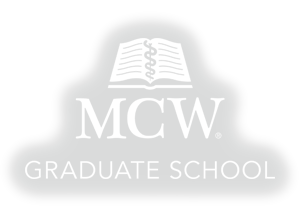
Biography
Year Entered MCW: 2016
Previous Education: BS, Biochemistry, Queen's University
Research Interests
A second project focuses on the development and testing of novel CD30 antibodies and bispecific antibodies (biAbs). Here, we have developed novel monoclonal antibodies (mAbs) against human CD30 and characterized these mAbs. Our two top mAb candidates were heteroconjugated with an anti-CD3 antibody (OKT3) in order to develop therapeutic biAbs. The function and efficacy of these biAbs have been assessed in vitro, and in vivo studies are underway. Our ultimate aim is to bring these biAbs forward to clinical trials at MCW.
Finally, we are evaluating T-Rapa cells as a novel CAR effector cell. T-Rapa cells are T cells that have been treated ex vivo with rapamycin. They have already been tested extensively in the clinic without CARs. We have transduced T-Rapa cells with a CD19 CAR vector in order to evaluate their effectiveness as CAR effector cells in comparison to traditional (non-rapamycin treated) T cells. T-Rapa cells are highly effective CAR effector cells and, notably, we have observed that they produce significantly less of certain cytokines, such as IFN-g. These cells may be of interest as a strategy to reduce cytokine release syndrome.
Publications
Oldham, RAA, Medin, JA. (2017). Practical considerations for CAR design and delivery. Expert Opinion on Biological Therapy. 17(8):961-978.
Al-Hujaily, EM. Oldham, RAA, Hari, P, Medin, JA. (2016). Development of Novel Immunotherapies for Multiple Myeloma. Int J Mol Sci 17(9).
Oldham RAA, Berinstein EB, Medin JA. (2015). Lentiviral Vectors in Cancer Immunotherapy. Immunotherapy. 7:271-284
Eves R, Oldham RAA, Jia, L, Mak, AS. (2015). The roles of Akt isoforms in the regulation of podosome formation in fibroblasts and invasion of extracellular matrix. Cancers. 7:96- 111.
Raycroft MAR, Maxwell CI, Oldham RAA, Andrea AS, Neverov AA, Brown RS. (2012). Trifunctional Metal Ion-Catalyzed Solvolysis: Cu(II)-Promoted Methanolysis of N,N-bis(2- picolyl) Benzamides Involves Unusual Lewis Acid Activation of Substrate, Delivery of Coordinated Nucleophile, and Powerful Assistance of the Leaving Group Departure. Inorganic Chemistry. 51:10325-10333.


